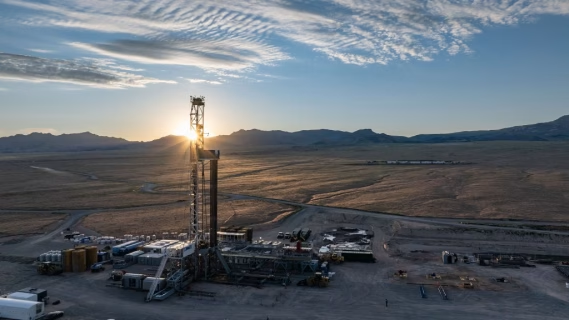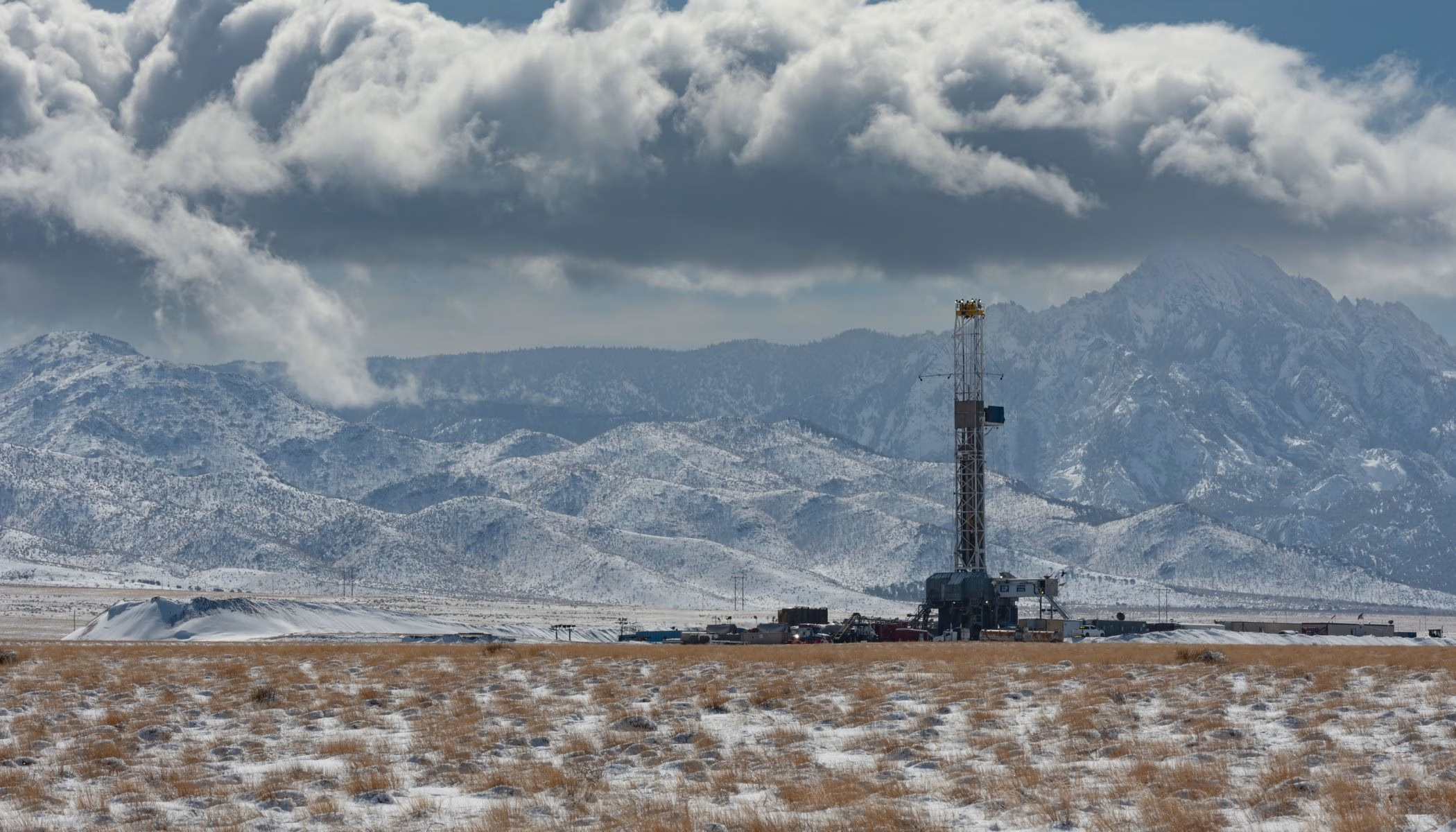Updated September 11, 2025: Microsoft CEO, Bill Gates, has shown great enthusiasm and zeal in the Cape Station geothermal project in Utah, noting its significance. Fervo Energy is moving swiftly to ensure that the project is delivered as it is gradually taking shape. The geothermal project is ready to move into its second phase of development, with the 100 MW Phase I breaking ground in 2026. On the other hand, Phase II which entails adding 300 MW by 2028 is also in the pipeline following recent funding and a new deal for Baker Hughes to supply equipment to five power plants. Fervo Energy’s advanced geothermal system will be the largest in the world, deploying advanced drilling and reservoir technology. Baker Hughes is gradually becoming amassed in the geothermal sector as it recently joined Controlled Thermal Resources in developing one of the world’s largest geothermal project in California.
March 9, 2025: Houston-based geothermal pioneer Fervo Energy has appointed energy tech giant Baker Hughes to design, manufacture, and deliver five 60 MW Organic Rankine Cycle (ORC) units for Phase II of its flagship Cape Station geothermal project near Milford, Utah. This collaboration cements Cape Station’s status as a world-class, scalable model for clean, round-the-clock power generation.
The feature scope includes Baker Hughes’ advanced turboexpanders and BRUSH Power Generation systems, customized to integrate with Fervo’s Enhanced Geothermal System (EGS) technologies. In addition, the setup will deliver firm, low-carbon baseload power equivalent to powering approximately 180,000 homes once fully commissioned.
Geothermal in Utah: A Burgeoning Power Hub
Utah’s southwest region holds vast geothermal potential, estimated at over 10 GW of untapped capacity. The mere 73 MW currently online is dwarfed by this figure. Furthermore, Cape Station directly benefits from the DOE’s FORGE research hub nearby. It has spent years validating the feasibility of EGS deployment in local geology.
Meanwhile, licensing activity is accelerating: BLM has approved 22 geothermal drilling permits this year, doubling the pace from 2023, and is planning a new 50,813-acre lease sale in April 2025 to enable further exploration.
Project Factsheet
Developer: Fervo Energy (Houston-based EGS leader)
Technology: Baker Hughes ORC units + Fervo EGS (horizontal, stacked wells, fiber optic monitoring)
Capacity: Phase I: 100 MW (by 2026)
Phase II: +300 MW (total 400–500 MW by 2028); Permitted up to 2 GW
Economic Impact: 6,600 jobs (construction), 160 FTE, $437 M wages, $1.1B local stimulus
Environment: BLM-approved EA/FONSI ensures low-impact build
Financing: $244M equity, $146M debt bridge
Power Buyers: Shell, Southern California Edison, Clean Power Alliance, others
Regional Geothermal Context: Utah: 10 GW potential; FORGE center; rapid permit and lease growth
Sector Trends: EGS maturing; bipartisan policy support; private backing (e.g., Gates); looming policy headwinds
Cape Station: Ambitious Scale, Deep Impact
Originally envisioned as a 400 MW project, Cape Station has since been scaled to 500 MW. This reflects surging demand for clean, reliable energy. Construction began with a groundbreaking in September 2023, supported by substantial community and government backing.
Economic impact estimates are staggering:
6,600 construction jobs and 160 ongoing full-time positions, over $437 million in wages injected into local economies and $1.1 billion catalyzed in local supply chains and business growth.
Additionally, environmental safety has been prioritized via an Environmental Assessment and a Finding of No Significant Impact from the BLM, paving the way for exploration and surface operations.

Innovation at the Core
Fervo’s technology harnesses horizontal, stacked well systems extending over 10,000 feet, with multi-level injection and production setups designed to prevent short-circuiting and maximize output.
Furthermore, their record-breaking 30-day reservoir test at Cape Station delivered 107 kg/s at high temperatures, outperforming expectations and marking the project as one of the most productive EGS sites ever.
Strategic Financing & Power Contracts
Financing has been secured through multiple sources:
$244 million raised in equity funding led by Devon Energy and other institutional investors. A $100 million bridge loan from X-Caliber Rural Capital (XRA LLC), later supplemented by $46 million for Phase I completion, totaling $146 million in debt financing.
Fervo has locked in long-term 15-year power purchase agreements. These include the 31 MW sold to Shell Energy North America and 320 MW to Southern California Edison. Additional volumes to Clean Power Alliance and other CAISO-serving utilities, all ensuring robust revenue visibility.
Wider Momentum in U.S. Geothermal
Despite currently making up less than 1% of U.S. electricity generation, enhanced geothermal is gaining traction thanks to bipartisan political support and private-sector investment from the likes of Bill Gates’ Breakthrough Energy Ventures. Geothermal’s 24/7 capacity, often exceeding a 90% capacity factor, makes it a unique complement to intermittent renewables. Its growth is also linked to rising energy demand from power-hungry industries such as Utah’s rapidly expanding data center sector, where projects like Joule’s deal to power the state’s largest and most advanced data center campus highlight the urgent need for reliable clean baseload power.
Challenges remain, potential policy uncertainty including tax incentive rollbacks and tariffs, and permitting hurdles under shifting federal priorities.

Leave a Reply